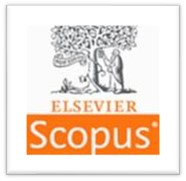Document Type
Article
Department
School of Nursing and Midwifery, Pakistan
Abstract
Background: Low-and middle-income countries including Pakistan still have low breastfeeding rates and infant feeding remains a concern. Human milk banks (HMBs) play a crucial role in neonatal and infant health by providing safe, pasteurized donor human milk to infants who do not have access to their mother's own milk, particularly preterm and low-birth-weight infants. The perception regarding the concept and use of HMBs has yet to be explored in several contexts, especially in the low-and middle-income countries including Pakistan.
Aim: To explore the perceptions of mothers regarding human milk banks in Pakistan, focusing on the barriers and enablers to their establishment, and the strategies to overcome these challenges.
Methodology: This study will employ a qualitative descriptive exploratory approach. A purposive sampling technique will be used to select 10 to 14 mothers for participation, with the final number determined by data saturation. In-depth interviews will be conducted using a semi-structured interview guide, which will be validated by experts to ensure its relevance and comprehensiveness. The collected data will be analyzed following Creswell's thematic analysis guide, ensuring a comprehensive identification of barriers and enablers to the establishment of human milk banks in Pakistan.
Significance/Implications: Understanding these factors is crucial for midwives, as they play a key role in advocating for and educating about human milk banking. The findings can inform policy development and the implementation of support systems, ultimately enhancing maternal and infant health outcomes. By addressing the identified barriers and leveraging enablers, midwives can contribute to the successful integration of human milk banks into the healthcare system, promoting optimal breastfeeding practices.
Recommended Citation
Jan, H B, Rizvi, N, Mubeen, K, & Baig, M. Exploring maternal perspectives on human milk banks in Pakistan and identifying barriers and enablers for establishment. Journal of Asian Midwives. 2024;11(1):112–121.



